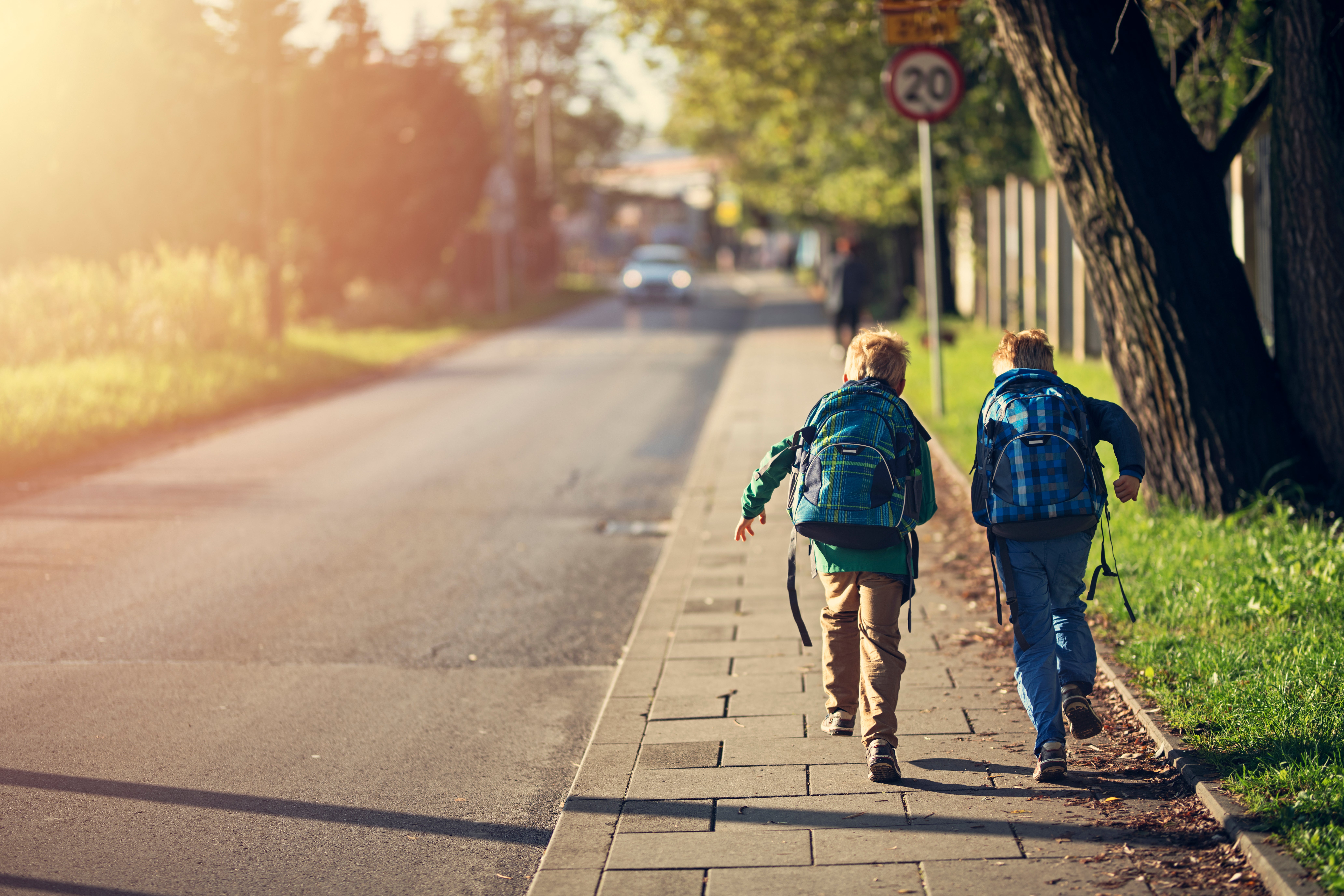The enduring and surprising power of your first best friend
In his last message to me, Nick encouraged me to realise the potential I had in mathematics – something I did my best to honour


It is 20 years ago today that my best friend, Nick Everton, died. He was 17 years old. Not much time to leave a mark on the world you would think. But those of us who knew him came away irreversibly altered by even the short time we shared together.
I first met Nick when I was six years old, and we quickly became good friends. When we were 11, we went to the same secondary school. We were in the same class. We played rugby together and would often stay the night at each other’s houses. There was always a bed made up at Nick’s house for me, which his family referred to – even if other guests were sleeping in it – as “Kit’s bed”. His parents treated me like another son. Similarly, my parents semi-adopted Nick. He would come on holiday with our family in the summer and I with his.
At school, we both got on well with maths. Nick was a naturally talented mathematician, but was never really interested in working too hard – he didn’t need to. We ended up as half of the four pupils taking further maths at our school. I wanted to read science at university, and Nick – ever practically minded – was hoping to study business, an ambition he never got to realise.
Part of the way through our first year of A-levels, Nick became ill. He was eventually diagnosed with Familial Adenomatous Polyposis, which manifested itself as gastrointestinal cancer. By the time they discovered it, the cancer was too far developed.
I visited him in hospital. I brought him news of what was happening at school and played a tinny version of our favourite band Oasis’s latest single, which I’d recorded from the radio. I visited Nick a few more times when he came back to spend his last days at home. I will admit to struggling to think of things to talk about, knowing our lives were now on such separate paths. But fortunately, Nick always knew what to say.
In a video he recorded for his friends and family in those desperate final days, he told us he was “sorry that things had to end this way”, and with beautiful pragmatism he went on to say: “But I’m afraid they do. So we’ll just have to put up with it and live with it and try and get on with it”.
In his last message to me, he encouraged me to realise the potential I had in mathematics, at A-level and beyond. I did my best to honour this over the years, going on to read mathematics at university. I discovered during my undergraduate degree that there were mathematicians who studied the development of cancerous tumours and the best ways to treat them.
My idealistic younger self was drawn down the paths which led to the specialism of mathematical biology, in the vain hope that I might contribute something to the understanding of the disease which had deprived me of my best friend. Though I ended up specialising in developmental biology – the mathematical modelling of the development of the early embryo – I have not forgotten the influence this young man has had on my career 20 years later.
Far more importantly though, was Nick’s influence on me as a person. We shared the rites of passage of young people of our generation. I remember, hazily, the first time we got stupidly, fabulously, riotously drunk – falling all over the place trying to walk straight. We discovered the emerging Britpop scene together and traced its ancestry back up the decades. We would meet most weekends in our local record store to scour the collections for the latest releases or back catalogue material. We went to our first gigs together, from the shady backrooms of Manchester pubs to the bright lights of stadium tours.
To keep up to speed with all the latest opinions and comment, sign up to our free weekly Voices Dispatches newsletter by clicking here
But the arena in which Nick expended most of his energy was in friendship. I was by no means his only friend. He was almost universally popular with pupils and teachers alike. If you were Nick’s friend, you had a kind of collegiate insurance. If you were in a bind you could rely on him to drop everything to help you out.
This is perhaps the most important thing I learned through our friendship. No one, no matter how talented they are in their field, can exist in a vacuum. Famous mathematicians and scientists are often portrayed as isolated geniuses – making breakthroughs on their own through lightbulb moments of clarity and insight. It’s easier to paint this picture than to capture the complex, messy teams and support networks that lie behind the individuals.
But scientists and mathematicians need their friends and family around them as much as anyone else. This was something fundamental that Nick understood. He would always make time to foster his relationships. They were more important than anything else to him. Ultimately, this is the reason I remember, with love, this beautiful, animated, mouthy lad from Stockport 20 years on.
Kit Yates is a senior lecturer in the Department of Mathematical Sciences and co-director of the Centre for Mathematical Biology at the University of Bath

Join our commenting forum
Join thought-provoking conversations, follow other Independent readers and see their replies